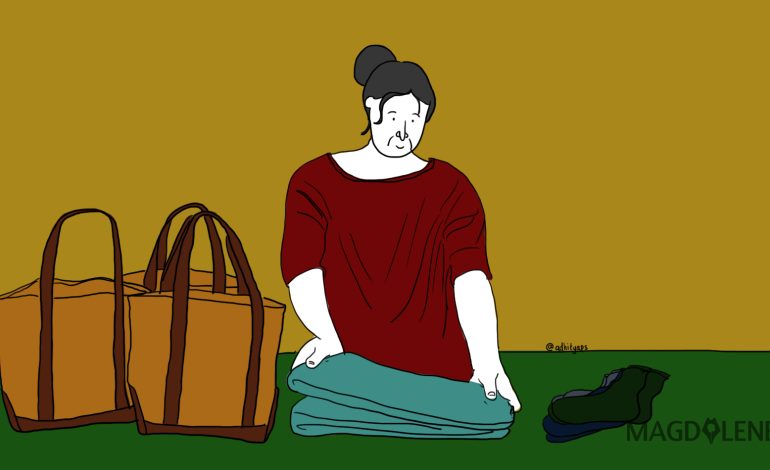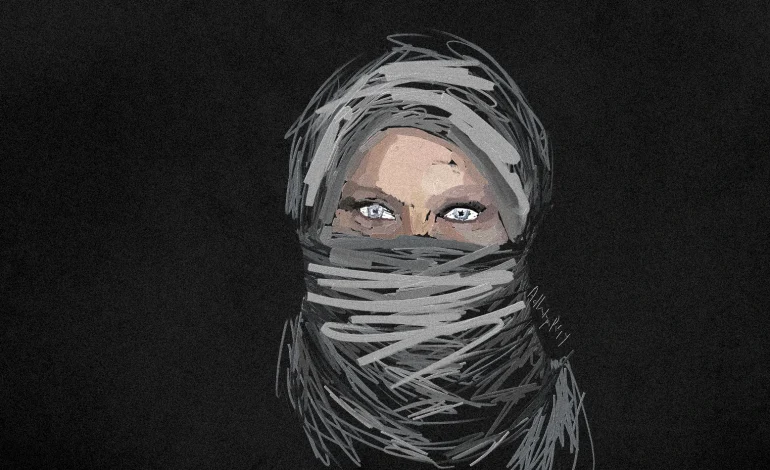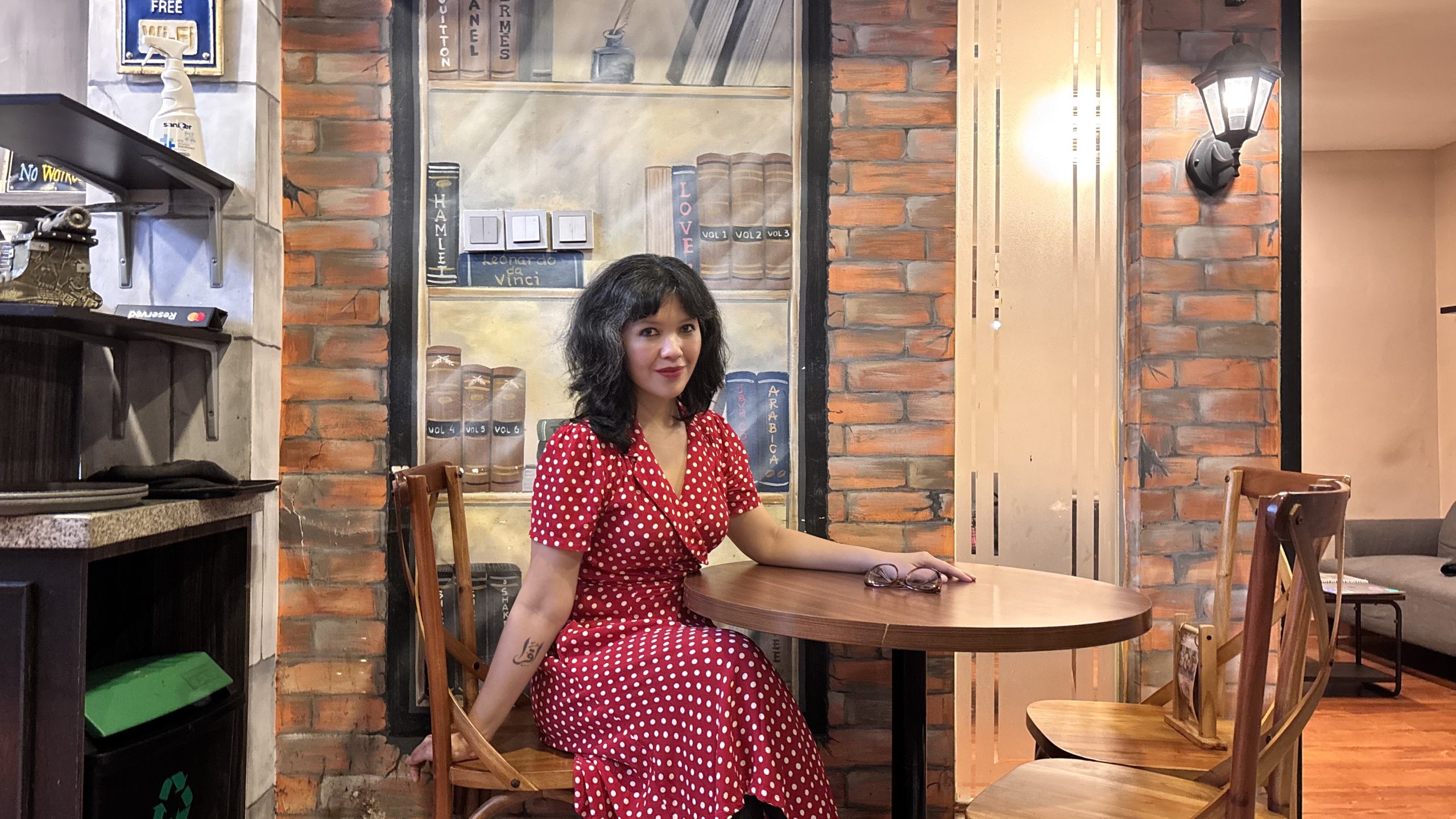For Many Women in Rural Indonesia, Gender Equality is a Far-Fetched Dream

The long-standing fight of feminist movement to foster an egalitarian society has undeniably brought about positive changes in some parts of the world, especially in the West. From the first wave feminism to post-modernism, feminist groups have been through never-ending battles.
The impact of feminism, however, might be less powerful in the southern hemisphere. In Indonesia, despite a growing number of women gaining access to higher education, workforce, and to the public and political sphere, transformation unfortunately mostly occurs in the urban areas. The face of women in the rural parts of this country has remain largely unchanged. Many of them remain uneducated, kept in the domestic domain and seen as a means for reproduction. They are dependent on men for their living and, ironically, portrayed as “weak” beings.
This is a true story of a woman I have known and loved my entire life, and whose life is attached to mine. A story of a woman oppressed by patriarchal systems, having nowhere to escape, and no agency to fight the oppression. This is a narrative from the perspective of a man who is sick of seeing his mother and other women in his family suffer from unjust tradition and patriarchal culture. A man who believes in egalitarian value.
I was born from and raised in a moderate Muslim family in a village in Kalimantan. As a kid, I used to believe and uphold the Islamic values dearly.
All my nuclear family members and relatives only got to finish junior high school – some even lower – and spend their entire lives in the village. The majority of the men work as farmers or traditional gold miners. The women normally do not engage in paid employment.
I am the lucky one; as I grew up I sought better education on my own and had the opportunities to explore the outside world. While I enjoy the privilege of exploring the endless horizon of knowledge and information, they are completely living in a different realm and their minds couldn’t go as far as mine.
The case is worse for the women, since their lives are very dependent on the power and often the mercy of men. In our family tradition, and in the village in general, where the influence of Islam is strong women are considered as complementary to men: as a wife, a mother, an obedient support system to the lives of men. Women do not have to be smart, because they will end up being a wife and staying at home anyway. The ability to raise kids and manage family’s finance would suffice as a great woman.
No matter how smart a woman could become, her opportunities are limited and often given to men. My mum and aunties badly wanted to pursue high school education back then, but the opportunities were given to their brothers instead, although my aunties and mum performed better at school.
When I asked my mum if that was how women are supposed to be, she said, “It is based on the Islamic teaching, so why would I disagree?”
The fact is, however, she has never had the opportunity to explore Islam in-depth; and she neither performs shalat five times a day, nor does the other compulsory teachings of the Quran. Many people in our neighborhood cannot differentiate between religious teachings and culture. Worst still, when it comes to religion, no one could question its teaching.
My mum, who walked down the aisle at the age of 16, is now in her early 40s. A full-time housewife, a mother of six and a graduate of middle school, she failed her first marriage and is now in a toxic marriage with an alcoholic and a junkie who enjoys gambling and the company of other “sexier and younger” women.
My mum got divorced when I was 11, and when my brother and sister were 9 and 4 years old. As a child, none of us really knew the cause of the divorce. She entered into a new marriage not too long after. Two years later, she gave birth to their first kid, just a few months after I started senior high school.
Having completed her “duty” as a wife to give the first heir to her husband did not seem to make her a queen in the family. I began to see the never-ending problems in her life. When asked, she always refused to share her story. It somehow became obvious a few years later when my siblings and I witnessed the fights she would have with my step dad. Often the fights revolved around him being caught cheating on her, or spending the bulk of his earnings from traditional gold mining on drugs, drinks and gambling.
But looking at the situation, I came to realize that it is not only our family’s problem, but also many of our relatives and neighbors. Alcohol and drugs abuse and gambling, seem to be a part of our tradition and are often associated with hegemonic masculinity.
As most of other women in our neighborhood, my mum does not have her own income, so she completely relies on her husband, while he does not always provide her and their kids adequately. With children who still need her to be home most of the time, she can’t even seek work to earn some money. Consequently, she is not just financially poor, but also emotionally drained. She knows that she needs to get out of this situation and she has always wanted to leave her husband, but she doesn’t want to bear the consequence of being a divorcee.
Being a janda (a widow or a divorced women) holds a lower social status in our culture, often judged as having failed to be a good wife or a mother, unlike a duda, the male counterpart. A janda is often considered less worthy than married and single women.
For my mum who has already failed once, the burden and social pressures would be much harder. She CAN’T risk this, she said and she would rather chose to endure all the pain, hoping that one day her husband would repent and change. She has no skills, so she can’t make enough money and if she divorces her husband, he will likely leave the kids with her. She fears she won’t be able to survive, no matter how much I convince her that my siblings and I are prepared to help.
To her surroundings, however, she is perceived as the source of the problem in the marriage – all the arguments she would have with her husband. She is seen as a mean, demanding and verbally-abusive wife by our neighbors and relatives. It has become a local habit to blame women for a divorce, without even trying to understand the circumstances that leads her to end the marriage.
Sadly, women are some of the most judgmental ones, although some of them are even victims of the same circumstance. I don’t blame them for this. Perhaps they have been taught that women should never fight back, even when they are terribly mad and hurt.
This is an oppression many women are facing: silenced and stigmatized. When they speak up about their marriage woes, they are often blamed for failure of being a good wife to their husbands and a good mother to their kids.
I rarely ever hear a man being condemned for a divorce, unless they are known as being physically-abusive. On the other hand, I was often told that no matter how chaotic a marriage gets, as long as the husband is not physically abusive, it should not be ended. My mum’s husband never abuses her physically, which is probably why she stays in the marriage.
In a culture that normalizes domestic emotional abuse, women are expected to be obedient and to endure the hardships. Ironically, women suffering from an abusive or cheating husband are often praised as strong women, someone to inspire other.
There were times I saw my female relatives and neighbors physically assaulted their husbands and were condemned and labelled as “bad wives.” But if the wives are victims of abuse, the husbands are seen as exercising his role as a head of the family to educate his wife according to the religion.
Let’s imagine an alternate scenario; if my mum were an educated woman who is valued beyond her body, her reproductive function and her domestic services, and if she were given equal opportunities, would she have been in her current predicament? I bet not. At least not as dependent and poor as she is today.
While my women friends in the cities seem to enjoy having access to higher education and their financial independence, women in my village and other rural areas are still miles away behind. Patriarchal culture has made my mum and other women dependent on their husbands and unable to make their own decision. This is exacerbated by gender-bias religious interpretation. For many, it seems like there is no exit button.
No feminist movement down here to help them out or at least inform them of their basic rights as women. Despite the open access to information, they see themselves as having no other options in life.
There is an urgent need to bring spread feminist values across the country, into rural areas where extreme poverty is prevalent. Women must be given freedom to explore and choose other options, instead of just being a stay-at-home mother. Of course these efforts need to be complimented with efforts to build their agency and power within the social system. And the strategy of future advocacy should seek to promote an egalitarian society, by not only focusing on women but also on men to foster an inclusive approach and accelerated outcomes.






















